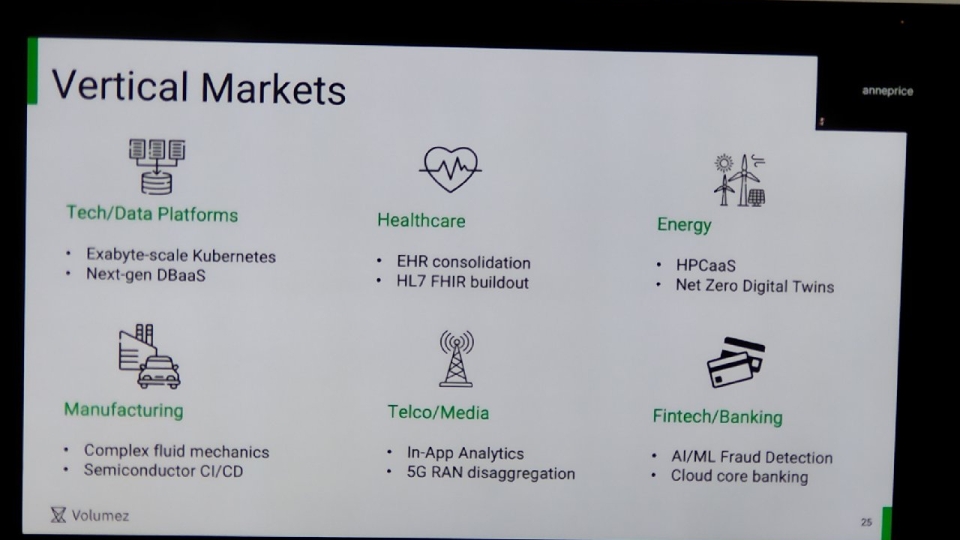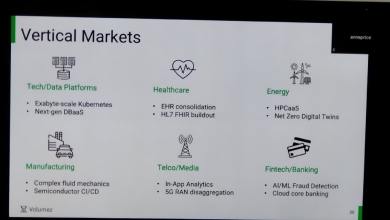
Ex-worldwide NetApp public cloud sales leader Jason McKinney is to lead cloud data go-to-market sales at Volumez as chief revenue officer. He has also held senior roles at Salesforce and VMware.
Volumez is a new data storage orchestration platform that is extending its market reach. It recently completed a $20m Series A funding round, and uses Linux software to “quickly execute modern data infrastructure workloads” across on-premise and multi-cloud environments.
Volumez is targeting a portion of the public cloud data storage segment, where customers are starting to realise that going all-in with what the cloud supplier is offering - by way of a full data service suite - can be expensive.
Companies can specify their block storage capacity, performance, resilience and security needs, and Volumez’s software orchestrates the storage using cost-effective Linux technology.
Volumez recently added Microsoft Azure cloud support to its existing Amazon Web Services capabilities.
In his previous roles, McKinney has scaled new services with partners and system integrators.
"Jason's deep and varied expertise in cloud services highly complements and adds to our innovative approach to next-generation data platforms and cloud storage connecting compute with data," said Volumez CEO Amir Faintuch. "He will accelerate our GTM and sales with cloud hyperscalers, customers, and ISVs leveraging these marketplaces."
"My proven experience in growing significant sales and leading large global diverse teams gives me a unique perspective to build momentum and revenue at Volumez mapping to customer success,” said McKinney.
CEO Faintuch told the IT Press Tour in the US in June this year: “This is a SaaS-based service that sees deployments worth between hundreds and thousands of dollars per month, depending on the size of the company.”
Asked whether the public cloud companies could offer the same service, Faintuch said: “They could, but it is not a priority for them as they are already making plenty from large customers, and we have a three-year start before coming out of stealth-mode earlier this year – our IP is in our orchestration.”
